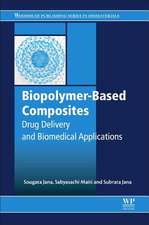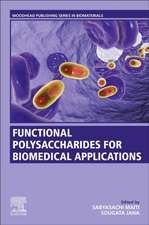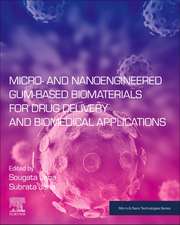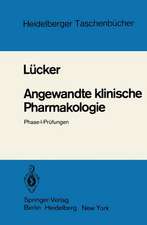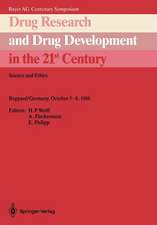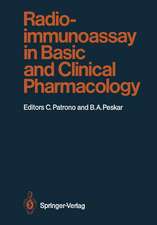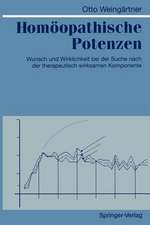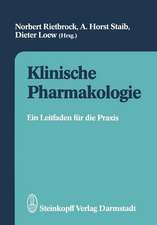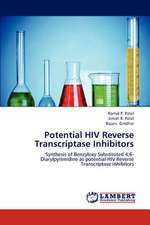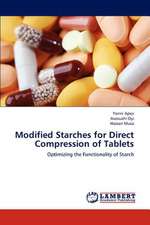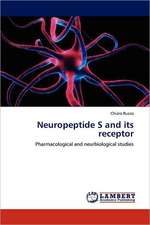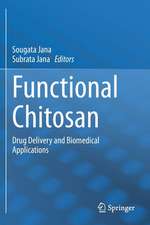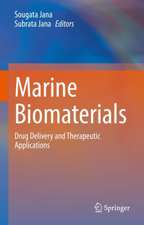Interpenetrating Polymer Network: Biomedical Applications
Editat de Sougata Jana, Subrata Janaen Limba Engleză Paperback – 26 aug 2021
This book presents an overview of the use of this technology to fabricate nanomedicine, hydrogels, nanoparticles, and microparticles, thereby unlocking IPN’s potential in the area of drug delivery and biomedical engineering. It also discusses applications of IPN systems in cancer therapy and tissue engineering, and describes the various IPN systems and their wide usage and applications indrug delivery.
| Toate formatele și edițiile | Preț | Express |
|---|---|---|
| Paperback (1) | 1097.36 lei 6-8 săpt. | |
| Springer Nature Singapore – 26 aug 2021 | 1097.36 lei 6-8 săpt. | |
| Hardback (1) | 1104.32 lei 6-8 săpt. | |
| Springer Nature Singapore – 19 feb 2020 | 1104.32 lei 6-8 săpt. |
Preț: 1097.36 lei
Preț vechi: 1155.11 lei
-5% Nou
Puncte Express: 1646
Preț estimativ în valută:
210.00€ • 228.03$ • 176.40£
210.00€ • 228.03$ • 176.40£
Carte tipărită la comandă
Livrare economică 23 aprilie-07 mai
Preluare comenzi: 021 569.72.76
Specificații
ISBN-13: 9789811502859
ISBN-10: 9811502854
Ilustrații: XII, 337 p. 59 illus., 37 illus. in color.
Dimensiuni: 155 x 235 mm
Greutate: 0.49 kg
Ediția:1st ed. 2020
Editura: Springer Nature Singapore
Colecția Springer
Locul publicării:Singapore, Singapore
ISBN-10: 9811502854
Ilustrații: XII, 337 p. 59 illus., 37 illus. in color.
Dimensiuni: 155 x 235 mm
Greutate: 0.49 kg
Ediția:1st ed. 2020
Editura: Springer Nature Singapore
Colecția Springer
Locul publicării:Singapore, Singapore
Cuprins
Chapter 1. Interpenetrating Polymer Network in Microparticulate Systems: Drug Delivery and Biomedical Application.- Chapter 2. Interpenetrating Polymer Network (IPN) Nanoparticles for Drug Delivery Applications.- Chapter 3. Fabrication Technology of Chitosan-Based IPN: Drug Delivery Application.- Chapter 4. Alginate based Interpenetrating Network Carriers for Biomedical Applications.- Chapter 5. pH Sensed Interpenetrating Polymeric Network: Application in drug delivery.- Chapter 6. IPN Dendrimers in Drug Delivery.- Chapter 7. BioproteinBased IPN Nanoparticles as Potential Vehicles for Anticancer Drug Delivery: Fabrication Technology.- Chapter 8. Semi-IPN systems for drug delivery.- Chapter 9. IPN Systems for Cancer Therapy.- Chapter 10. Semi-interpenetrating networks based on (meth)acrylate, itaconic acid and poly(vinyl pyrrolidone) hydrogels for biomedical applications.- Chapter 11. Biomedical Applications of Interpenetrating Polymer Network Gels.- Chapter 12. Bio-Nanocomposite IPN for Biomedical Application.-
Notă biografică
Sougata Jana is a B.Pharm. (Gold Medalist) from West Bengal University of Technology, Kolkata, and M.Pharm. (Pharmaceutics) from Biju Patnaik University of Technology, Odisha, India. He worked as an Assistant Professor at Gupta College of Technological Sciences, Asansol, West Bengal, India. Currently, he is working at the Department of Health and Family Welfare, Directorate of Health Services, Kolkata, India. He is engaged in pharmaceutical education and research for the last 11 years. IPA Bengal branch, Kolkata, India conferred upon him the “M.N Dev Memorial Award” for securing the highest marks in the state of West Bengal in 2005. He bagged “Best Poster Presentation Award” at the 21st West Bengal State Science and Technology Congress-2014, and “Outstanding Paper Award” at the 1st Regional Science and Technology Congress-2016, organized by DST, Govt. of West Bengal, India. He has 30 publications in different national and international peer-reviewed journals. He edited booksin Springer, Elsevier and Pharmamedix India Publication Pvt. Ltd. He has contributed more than 35 book chapters with Elsevier, Springer, Wiley VCH, CRC Press, and Taylor & Francis Group. His research area of interest includes modification of synthetic and natural biopolymers, microparticles, nanoparticles, semisolids and interpenetrating network system for controlled drug delivery.
Subrata Jana is presently working as Associate Professor at the Department of Chemistry, Indira Gandhi National Tribal University (Central University), Amarkantak, Madhya Pradesh, India, and his current research focuses on design and synthesis of artificial receptors for the recognition of anions, cations and N-methylated protein residue. He is also working on biodegradable polymeric-based carrier systems for the delivery of drug molecules by collaboration with pharmaceutical scientist. So far he has published ~40 research papers in peer-reviewed international journals and contributed more than 10 book chapters in different edited books published by internationally renowned publishers. He also serves as an editorial board member for the Journal of PharmaSciTech (ISSN: 2231 3788) and International Journal of Scientific and Engineering Research (ISSN: 2229-5518) as well as reviewer for International Journal of Biological Macromolecule (Elsevier), Journal of PharmaSciTech and Current Pharmaceutical Design (Bentham).
He has obtained his PhD in organic chemistry from the Indian Institute of Engineering Science and Technology (IIEST), Shibpur, India. Then he moved to the University of Victoria, Canada, to work with Professor (Dr.) Fraser Hof on supramolecular and medicinal chemistry as a post-doctoral fellow. He then worked further with Dr. Kenneth J Woycechowsky at the University of Utah, USA, on protein engineering and enzyme catalysis as a post-doctoral research associate. Overall, he extensively studied supramolecular behaviour of the host-guest interaction and synthesis of heterocyclics like pyrimidines, naphthyridines, quinolone and diazepines, etc. by exploiting microwave protocol for green chemical synthesis.
Subrata Jana is presently working as Associate Professor at the Department of Chemistry, Indira Gandhi National Tribal University (Central University), Amarkantak, Madhya Pradesh, India, and his current research focuses on design and synthesis of artificial receptors for the recognition of anions, cations and N-methylated protein residue. He is also working on biodegradable polymeric-based carrier systems for the delivery of drug molecules by collaboration with pharmaceutical scientist. So far he has published ~40 research papers in peer-reviewed international journals and contributed more than 10 book chapters in different edited books published by internationally renowned publishers. He also serves as an editorial board member for the Journal of PharmaSciTech (ISSN: 2231 3788) and International Journal of Scientific and Engineering Research (ISSN: 2229-5518) as well as reviewer for International Journal of Biological Macromolecule (Elsevier), Journal of PharmaSciTech and Current Pharmaceutical Design (Bentham).
He has obtained his PhD in organic chemistry from the Indian Institute of Engineering Science and Technology (IIEST), Shibpur, India. Then he moved to the University of Victoria, Canada, to work with Professor (Dr.) Fraser Hof on supramolecular and medicinal chemistry as a post-doctoral fellow. He then worked further with Dr. Kenneth J Woycechowsky at the University of Utah, USA, on protein engineering and enzyme catalysis as a post-doctoral research associate. Overall, he extensively studied supramolecular behaviour of the host-guest interaction and synthesis of heterocyclics like pyrimidines, naphthyridines, quinolone and diazepines, etc. by exploiting microwave protocol for green chemical synthesis.
Textul de pe ultima copertă
The book focuses on novel interpenetrating polymer network (IPN)/semi-IPN technologies for drug delivery and biomedical applications. The dynamism of the design and development of interpenetrating network polymers is based on their ability to provide free volume for the easy encapsulation of drugs in the three-dimensional network structure obtained by cross-linking two or more polymer networks. Natural polymer-based IPNs can deliver drugs at a controlled rate over an extended period of time, while novel IPNs ensure better mechanical strength and sustained/ controlled drug-delivery properties.
This book presents an overview of the use of this technology to fabricate nanomedicine, hydrogels, nanoparticles, and microparticles, thereby unlocking IPN’s potential in the area of drug delivery and biomedical engineering. It also discusses applications of IPN systems in cancer therapy and tissue engineering, and describes the various IPN systems and their wide usage and applications indrug delivery.
This book presents an overview of the use of this technology to fabricate nanomedicine, hydrogels, nanoparticles, and microparticles, thereby unlocking IPN’s potential in the area of drug delivery and biomedical engineering. It also discusses applications of IPN systems in cancer therapy and tissue engineering, and describes the various IPN systems and their wide usage and applications indrug delivery.
Caracteristici
Presents the latest and relevant applications of Interpenetrating polymer networks (IPN)/semi-IPN technology in the field of pharmaceutical and biological sciences Comprehensively elaborates the different uses and advantages of IPN technology in the field of drug delivery and biomedicine Realizes the potential of IPNs in the stream of pharmaceutical sciences in areas such as cancer therapy and tissue engineering Shall act as a useful guide to the scientists and researchers working in this field to bring new innovations

